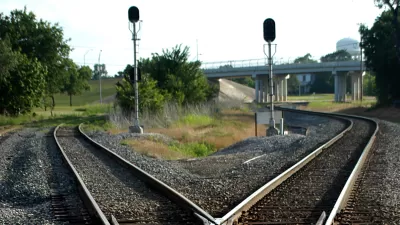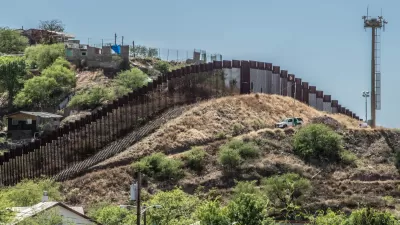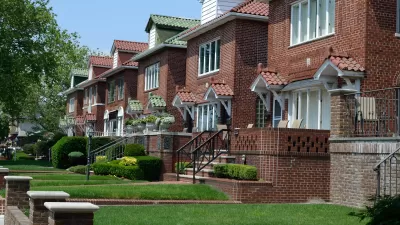President Trump's proposed infrastructure plans intends to shift ownership of much of America's infrastructure into private hands. Rebecca Burns argues that this approach will benefit the country's richest at the expense of the rest of the country.

Many have worried about America’s loss of strength in building infrastructure (link) and have concerns that the country's infrastructure costs continue to ratchet up out of proportion with other nations. In proposing a great expansion of the country's infrastructure through loans to private companies, the Trump Administration has what it hopes is a solution to both problems. "Trump and Bannon’s apparent rejection of neoliberal orthodoxies, including fiscal austerity and free trade, inspired hope that progressives might actually be able to negotiate with Trump on a small number of economic issues—if they could avoid collaborating in an otherwise racist, reactionary agenda," Rebecca Burns writes for In These Times.
The idea of bringing more private ownership to the U.S. infrastructure is not new and has been forwarded by some in the Democratic Party. But the Trump Administration seems poised to expand beyond areas explored in the past. "The President announced a 'great new era in American aviation,' meaning he was asking Congress to privatize the air-traffic control system," Burns writes.
Who is pushing to take the job of upgrading infrastructure out of government hands? Lobbyists. "Among the industry groups that have lobbied the administration and Congress on an infrastructure overhaul so far this year, according to federal lobbying disclosures, are BlackRock, the world’s largest investment management company; the Securities Industry and Financial Markets Association, a Wall Street trade group; American Water, a private water company; two private tolling companies; and free-market proselytizer Heritage Action for America," Burns writes. This boon to Wall Street would make the building of bridges no cheaper and limit the power of the users of these bridges to have a say over them.
FULL STORY: A New Deal for Wall Street

Planetizen Federal Action Tracker
A weekly monitor of how Trump’s orders and actions are impacting planners and planning in America.

Chicago’s Ghost Rails
Just beneath the surface of the modern city lie the remnants of its expansive early 20th-century streetcar system.

San Antonio and Austin are Fusing Into one Massive Megaregion
The region spanning the two central Texas cities is growing fast, posing challenges for local infrastructure and water supplies.

Since Zion's Shuttles Went Electric “The Smog is Gone”
Visitors to Zion National Park can enjoy the canyon via the nation’s first fully electric park shuttle system.

Trump Distributing DOT Safety Funds at 1/10 Rate of Biden
Funds for Safe Streets and other transportation safety and equity programs are being held up by administrative reviews and conflicts with the Trump administration’s priorities.

German Cities Subsidize Taxis for Women Amid Wave of Violence
Free or low-cost taxi rides can help women navigate cities more safely, but critics say the programs don't address the root causes of violence against women.
Urban Design for Planners 1: Software Tools
This six-course series explores essential urban design concepts using open source software and equips planners with the tools they need to participate fully in the urban design process.
Planning for Universal Design
Learn the tools for implementing Universal Design in planning regulations.
planning NEXT
Appalachian Highlands Housing Partners
Mpact (founded as Rail~Volution)
City of Camden Redevelopment Agency
City of Astoria
City of Portland
City of Laramie





























